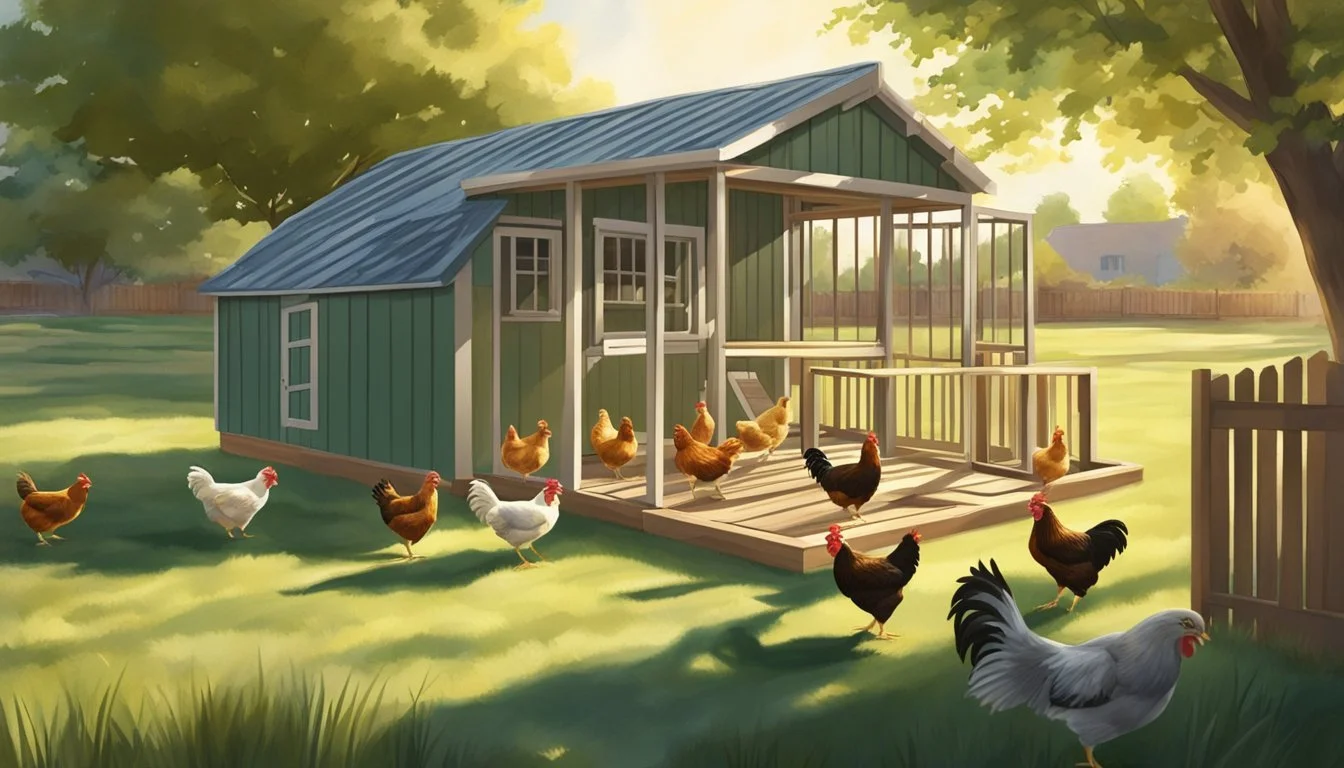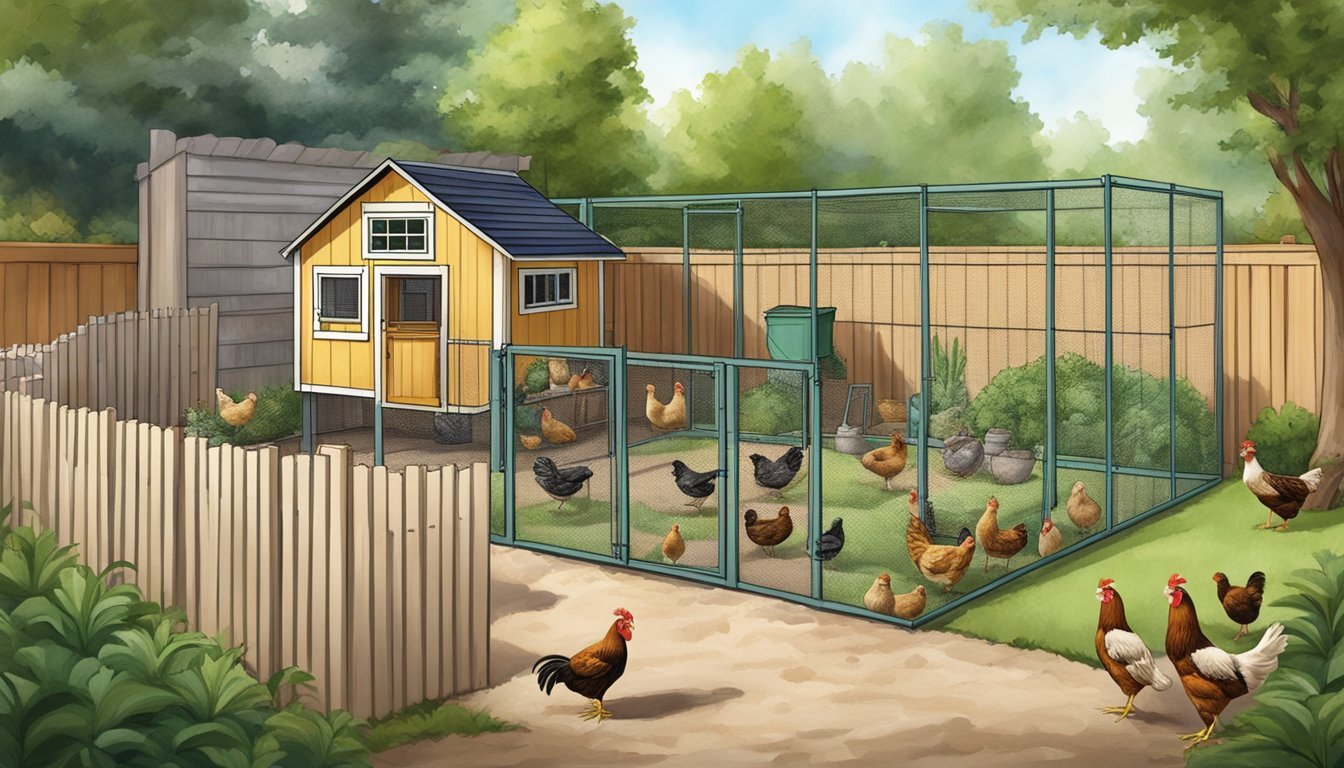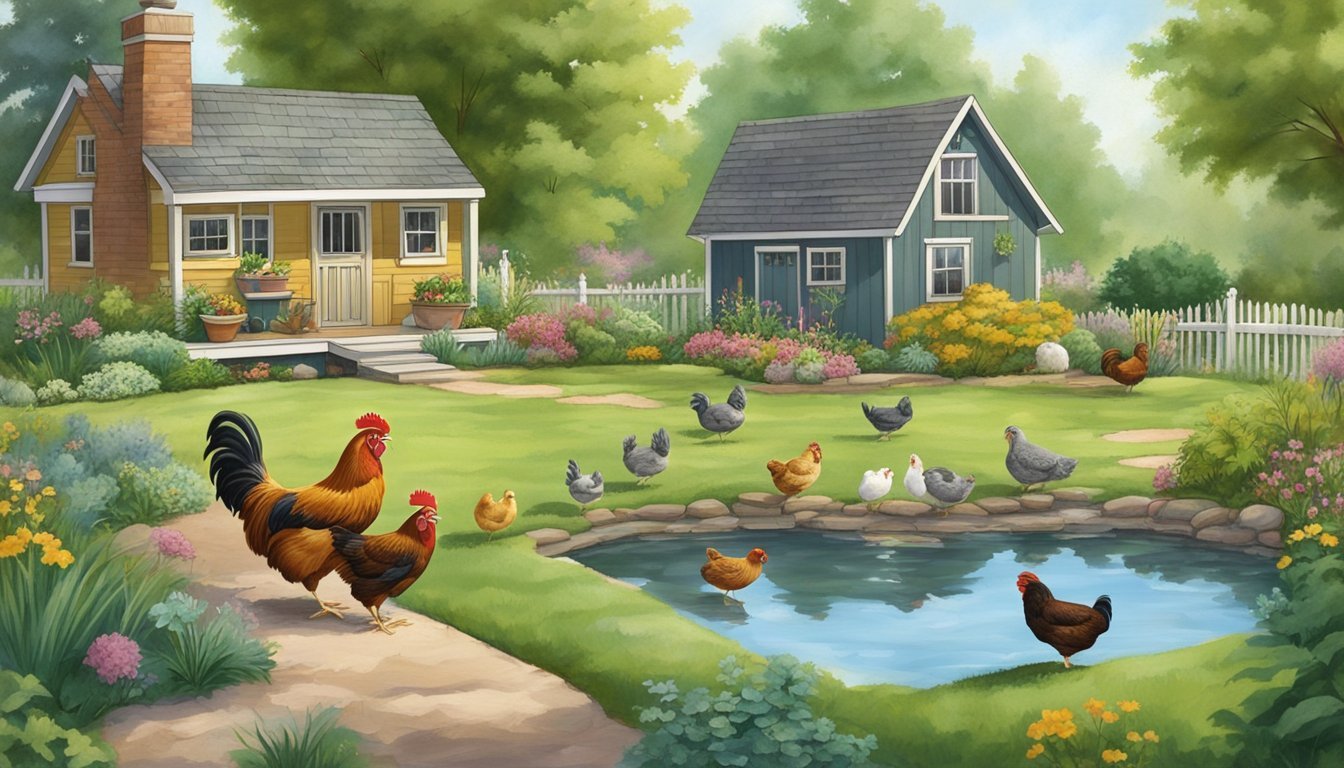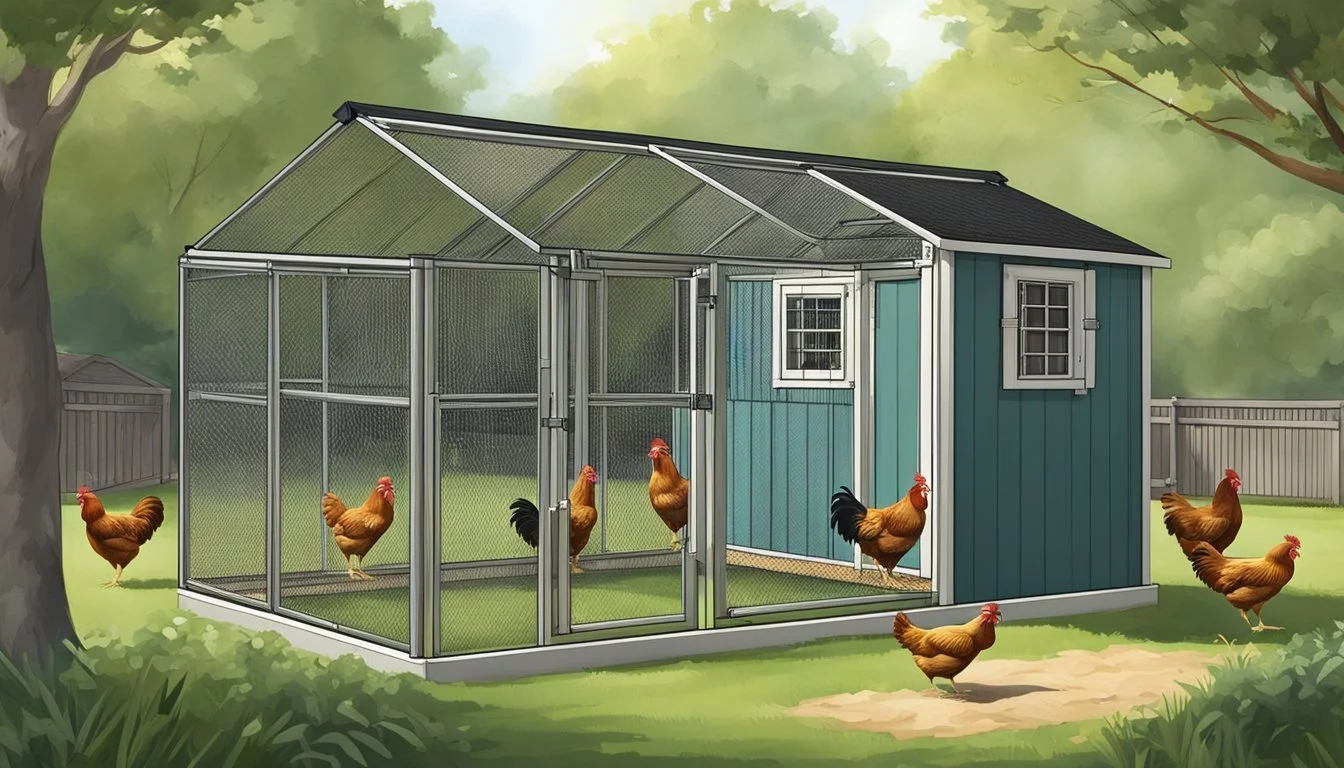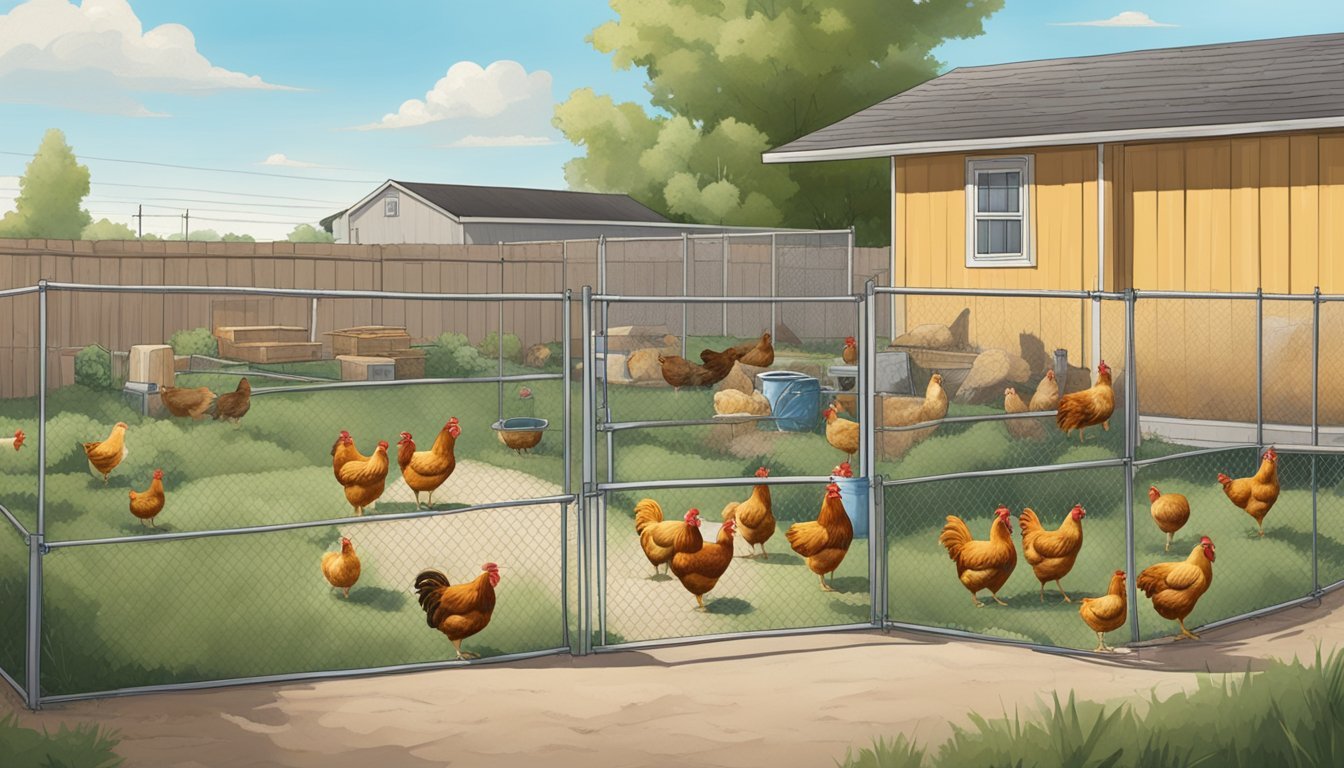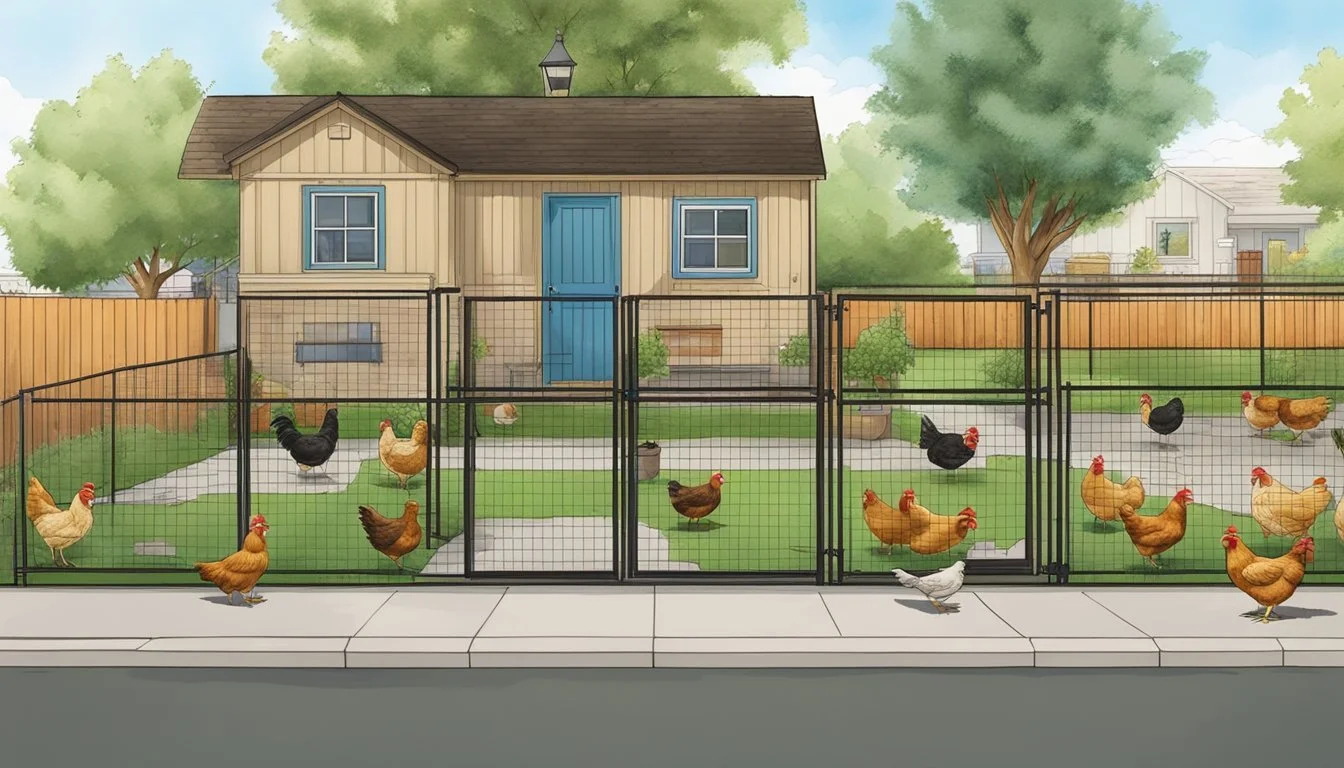Keeping Backyard Chickens in Nampa, ID
Essential Guidelines for Beginners
Backyard chicken (how long does chicken last?) keeping has become increasingly popular across the United States, serving as a source of fresh eggs, natural pest control, and the joy of caring for animals. In Nampa, Idaho, this trend is accommodated by city regulations, but with specific guidelines to ensure the harmony and well-being of the community. Residents of Nampa are permitted to keep up to ten chickens in their backyards, a number that balances personal sustainability with neighborhood considerations.
However, the city maintains certain restrictions to minimize potential nuisances. Keeping roosters, for example, is prohibited within city limits to prevent noise disturbances. For Nampa residents to legally keep backyard chickens, they must adhere to the city's permit requirements. This includes submitting an application and paying the necessary fees associated with obtaining a permit, underscoring the city’s commitment to managed urban agriculture.
As each city has its unique ordinances, prospective chicken keepers in Nampa need to be well-informed about the local laws. These laws are designed to protect both the chickens and the community, and they serve as a framework for responsible and enjoyable backyard chicken farming. It’s essential for residents to check with local government or official city websites to stay updated on any changes to these regulations and to ensure they meet all the necessary conditions for keeping chickens in their backyards.
Local Legal and Regulatory Framework
Within Nampa, Idaho, those interested in keeping backyard chickens must navigate a defined set of legal and regulatory guidelines. This ensures orderly and courteous urban farming in accordance to the local government's ordinances.
Understanding Nampa's Backyard Chicken Ordinances
The City of Nampa stipulates specific ordinances that govern the keeping of backyard chickens within its city limits. It is crucial for residents to recognize that these regulations are distinct from those of other Idaho cities such as Boise, Idaho Falls, Meridian, Pocatello, Post Falls, and Twin Falls. The local chicken laws in Nampa allow residents to keep a certain number of chickens, while explicitly prohibiting the keeping of roosters to prevent noise disturbances. These rules aim to accommodate urban farming practices while balancing community comfort.
Permit Requirements and Limits on Number of Chickens
When considering the keeping of backyard chickens in Nampa, residents are required to follow a permit process. Permits are essential to legally house chickens, and one must:
Submit an application
Pay the associated fees
As for the limits on the number of chickens, the City of Nampa permits residents to keep up to 10 chickens. However, this provision applies solely to hens, as the ordnance disallows roosters within the city limits to curtail potential noise issues. It should be noted that this is more lenient compared to Caldwell, ID, a neighboring community where the ordinances may differ.
Residents must make it a priority to check for the most current regulations with the local government as ordinances can sometimes be subject to change.
Chicken Coop Essentials
When setting up a chicken coop in Nampa, ID, certain key factors must be considered to ensure the health and safety of your chickens. Coop design, predator protection, and proper maintenance are essential components for a successful backyard flock.
Coop Design and Size
The design of the coop should reflect the needs of your chickens, providing adequate space for them to roost, lay eggs, and have shelter. As a general rule, allocate about 3-4 square feet per chicken inside the coop, and provide even more space if they are to be confined for a significant portion of the day. Features such as nesting boxes — one for every three to four hens — are crucial for egg laying.
Ventilation and Insulation
Proper ventilation helps maintain air quality and prevent respiratory problems, while insulation is vital to protect chickens from extreme temperatures during winter. The coop should have windows or vents placed high enough to prevent drafts on the nesting area, yet allow for air flow. This is critical for both the chicken's comfort and their respiratory health.
Security Against Predators
Chickens need protection from predators such as raccoons, foxes, and hawks. Key security features include:
Sturdy chicken wire, or better, hardware cloth for all openings
A secure locking mechanism for doors and windows
Proper fencing around the chicken yard
It is also wise to regularly inspect the perimeter for any signs of attempted entry by predators.
Coop Maintenance and Cleaning
Regular cleaning and the management of waste are non-negotiable for a healthy coop environment. A cleaning schedule should include:
Daily: Removal of feces and topping off of food and water supplies
Weekly: Changing bedding and checking for pests
Monthly: A more thorough cleaning of all surfaces and crevices
Additionally, implementing a deep-litter method can improve coop sanitation and ventilation, making maintenance easier while also providing insulation.
Caring for Your Chickens
Proper care of backyard chickens in Nampa, ID, encompasses meeting their nutritional needs, ensuring a reliable water supply, performing regular health checks, and preparing for extreme weather conditions. Here's a breakdown of these key areas of chicken care.
Feeding and Nutrition
Chickens require a balanced diet rich in nutrients. Owners should provide a high-quality, commercial feed that meets all their dietary needs. For adult chickens, a layer feed with about 16% protein is appropriate. It's crucial to supplement their diet with calcium for strong eggshells. Avoid giving food with salt, sugar, and fat in excess.
Water Supply and Management
A consistent supply of clean water is essential for chickens' health. Waterers must be checked and refilled daily to ensure that chickens have access to water at all times. In freezing conditions, water can solidify, so owners might need to invest in heated waterers to prevent ice formation.
Healthchecks and Veterinary Needs
Regular health checks help in early detection of potential issues. Owners should look for signs of abnormal behavior, respiratory problems, or changes in eating habits that could indicate illness or parasites. Chickens may require vaccinations or treatments for common diseases, which should be administered by a qualified veterinarian.
Handling Extreme Weather Conditions
Chickens are hardy, but Nampa's winters require additional measures for their well-being. A heat lamp can be used to maintain a suitable temperature in the coop. However, they must be positioned carefully to prevent fire hazards. In the summer, shade and ventilation prevent overheating.
By attending to these critical aspects, owners can ensure their chickens are healthy and comfortable throughout the year in Nampa, Idaho.
Breeding and Raising Chickens
Breeding and raising chickens in Nampa, ID requires careful selection of breeds, understanding of chick care, and knowledge of hatching practices. These components ensure a thriving backyard flock.
Selecting Breeds for Your Flock
When selecting chicken breeds for a Nampa backyard, prospective chicken keepers should consider local climate, space, and egg production needs. Dual purpose breeds such as the Plymouth Rock or Rhode Island Red are well-suited for both meat and egg production. For those focusing on egg-laying capabilities, breeds like Leghorn or Sussex are ideal as they are prolific egg producers.
Plymouth Rock: Hardy and docile; excellent for beginners
Rhode Island Red: Adaptable to environments; great layer of brown eggs
Leghorn: Efficient layers of white eggs; more active breed
Sussex: Good-natured and produce large eggs
Raising Chicks and Pullets
Raising chicks requires a secure brooding area with a consistent heat source to maintain appropriate temperatures. Pullets—juveniles preparing to lay eggs—should have access to a coop equipped with proper nesting boxes and roosts to support natural behaviors. The coop should be predator-proof and easy to clean, promoting health and safety.
Brooder Essentials:
Heat lamp or brooder plate
Feeder and waterer
Bedding, such as pine shavings
Coop Features:
One nesting box for every 4-5 hens
Roosting bars at different heights
Adequate space (at least 3 square feet per bird)
Hatching Eggs and Buying from Hatcheries
For those interested in hatching eggs, incubators provide a controlled environment for egg development. Alternatively, chicks can be purchased from hatcheries, where they are bred under professional standards. Most hatcheries offer a broad selection of breeds, making it easier for residents to start or add to their flocks.
Incubator Tips:
Maintain humidity between 50-65%
Turn eggs at least three times a day
Keep temperature steady at 99.5°F
When sourcing from hatcheries, ensure they are reputable and practice safe, ethical hatching methods to receive healthy chickens.
Coexistence with Other Backyard Animals
When keeping backyard chickens in Nampa, ID, one must consider how they will coexist with other backyard animals. This involves understanding the dynamics of multiple poultry species and ensuring that household pets can peacefully and safely share the outdoor space.
Managing Multiple Poultry Species
Ducks often thrive alongside chickens, but they require access to water for swimming and have different dietary needs. It's crucial to provide separate enclosures or areas to avoid competition and potential conflict. Geese, like ducks, need water and can be more territorial, so ample space is necessary to prevent aggressive behavior.
Turkeys are larger poultry that can be kept with chickens, provided they have enough room to avoid dominance issues. They should have a separate feeding area to prevent the spread of disease. Rabbits can coexist with chickens, but they need their own secure area to avoid stress and potential harm.
Precautions with Companion Animals
Pets such as dogs and cats commonly share the backyard with chickens. Introduce pets to the poultry gradually to foster a sense of familiarity, using leashes or enclosures as necessary to manage interactions. Monitor their behavior closely to ensure the safety of all animals involved.
Dogs may need training to learn not to chase poultry, while cats should be observed to make sure they don't see smaller chicks as prey. A secure coop and run are essential to protect chickens from potential predators and ensure peaceful cohabitation.
Daily Management and Best Practices
Proper daily management and adherence to best practices are essential for the health and productivity of backyard chickens in Nampa, ID. This includes establishing a consistent routine and implementing effective waste management systems.
Creating a Routine for Daily Care
A dedicated daily routine is crucial for keeping chickens healthy and secure. Maintenance of the coop should involve:
Morning:
Check and refill waterer: Clean, fresh water is imperative.
Refill feeder: Ensure a steady supply of quality feed.
Collect eggs: Frequent collection keeps eggs clean and minimizes breakage.
Evening:
Secure chickens in the coop: Protects from predators.
Inspect for health or behavior issues: Promptly address any concerns.
Regular use of pine shavings as bedding helps to keep the coop dry and comfortable, which should be changed or fluffed daily depending on moisture levels and cleanliness.
Waste Management and Composting
Effective management of chicken waste maintains a healthy environment and complies with local ordinances.
Composting: Chicken manure can be composted and later used as a nutrient-rich fertilizer for gardens.
Daily cleaning: Remove droppings from the coop and run to minimize odor and disease risk. Transport waste to a designated compost area.
Proper management of waste not only improves the coops' conditions but also contributes to the overall sustainability of backyard chicken keeping.
Public Health and Safety
When keeping backyard chickens in Nampa, ID, it's crucial to recognize the public health implications and adopt safe practices for disease prevention as well as during slaughtering processes. This ensures the safety of both the food supply and the community.
Understanding Risks of Disease
Poultry can carry diseases transmissible to humans, so it's vital for owners to implement rigorous health safety measures. Regular inspections and obtaining health certificates for backyard chickens may be mandated by some municipalities to monitor for illnesses such as salmonella or avian influenza. Moreover, owners should practice good sanitation with frequent cleaning of chicken coops and proper disposal of waste to mitigate health risks.
Biosecurity Measures should include:
Isolation of new birds
Restricting access to the coop by unauthorized personnel or potential predators
Use of footbaths and sanitizers before and after entering the chicken area
Handling Eggs Safely:
Wash hands thoroughly before and after touching eggs
Collect eggs frequently to maintain cleanliness
Refrigerate eggs to prevent bacterial growth
Responsible Slaughtering Practices
For those who raise chickens for meat, they must adhere to safe slaughtering protocols to prevent contamination and ensure the meat is safe for consumption. The slaughtering area needs to be clean and well-organized, with tools properly sanitized. Safe food handling principles, such as keeping the slaughtering area separate from living birds and egg production, are essential. Proper disposal of waste and byproducts is also a key component of maintaining a healthy environment and preventing the spread of disease.
Community Engagement and Education
Engagement and education are core to fostering a responsible community of backyard chicken owners in Nampa, ID. Providing a framework for interaction and knowledge exchange ensures that chicken owners are well-informed about best practices for maintaining a healthy chicken yard.
Building a Network of Chicken Owners
Creating a robust network is crucial for backyard chicken owners to support one another and stay informed. Chicken owners can come together to form a local poultry club where they can share tips and advice. Additionally, they might organize regular meetings or shows that allow for face-to-face interaction and direct learning opportunities. Here are ways to engage:
Monthly Meetings: Schedule regular gatherings to discuss care, concerns, and advice for raising backyard chickens.
Online Forums: Establish online platforms for Nampa residents to engage in discussions and plan community events related to backyard chickens.
Annual Chicken Coop Tour: Coordinate an event where chicken owners open their yards to others, showcasing different coop styles and setups.
Learning and Sharing Best Practices
Education is essential to ensure the well-being of backyard chickens and the satisfaction of their owners. By sharing best practices, the community ensures that everyone has access to the most current and effective information.
Workshops: Hold workshops led by experienced chicken owners or veterinarians to educate new poultry enthusiasts on topics such as coop construction, nutrition, and health.
Resource Sharing: Create a shared library of resources including guides, books, and articles on backyard chicken care.
Local Regulations: Inform members about Nampa's specific requirements, such as permits and the restriction on keeping roosters, to ensure legal compliance.
Through these initiatives, the community empowers individuals to build healthy, happy environments for their backyard chickens, while also adhering to local regulations.
Legal and Ethical Considerations
When considering maintaining backyard chickens in Nampa, ID, residents are faced with both legal requirements and ethical considerations. These play a pivotal role in how individuals engage with their community, manage their pets, and use chickens for eggs or meat.
Ethics of Keeping Chickens as Pets or for Food
Keeping chickens requires a commitment to both their well-being and the ethics involved in animal husbandry. In Nampa, ethical considerations include providing adequate shelter that is well-ventilated, secure, and clean, ensuring the chickens' welfare. Whether kept as pets or for egg and meat production, it is important to consider the quality of life offered to these animals. Irrespective of their purpose, chickens deserve humane treatment, which encompasses not only good living conditions but also respectful interaction.
Navigating Disagreements with Neighbors and the Community
Interactions with neighbors and the broader community require delicate management, especially when disagreements arise. Local regulations, such as permit requirements and zoning ordinances, must be adhered to, which includes obtaining a permit for keeping backyard chickens, adhering to limits on the number of hens, and recognizing that roosters are prohibited within city limits. Community engagement is essential when addressing concerns related to noise, waste management, and property values. One must navigate these interactions with respect and understanding, aiming to minimize disputes and promote a harmonious living environment for all.
By adhering to local laws and ethical practices, residents of Nampa can responsibly enjoy the benefits of raising chickens, contribute to a sustainable source of eggs and meat, and foster positive community relationships.

